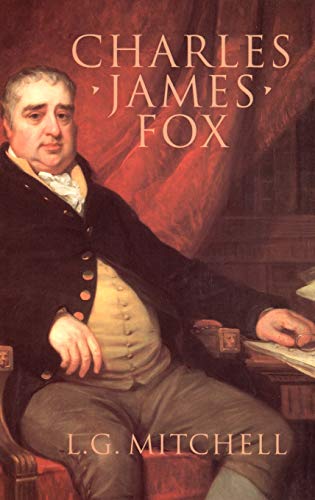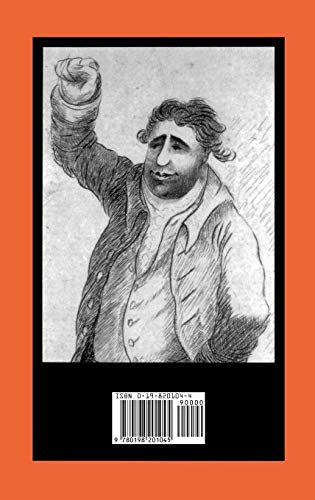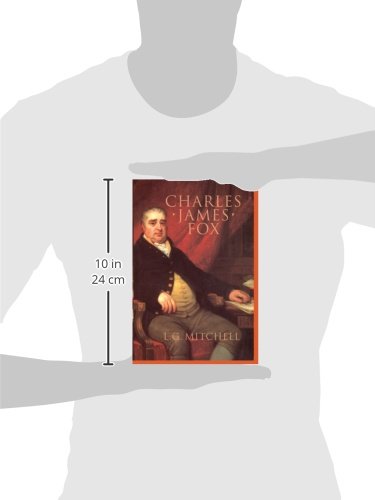Customer Services
Copyright © 2025 Desertcart Holdings Limited
Desert Online General Trading LLC
Dubai, United Arab Emirates




Charles James Fox
T**E
Parliamentary debate at it's best
A well written and entertaining book at a dangerous time in history
A**R
Five Stars
An excellent book and a good read
T**R
Charles James Fox
Reading biographies of Georgian/Victorian politicians at the moment, it was inevitable that eventually I would get to Charles Fox, described by the author as “one of the most colourful figures in eighteenth-century politics”. I don’t think there’s any doubt about that. He led a scandalous private life, but was a staunch politician, welding the Whig party into a united political front. Probably not so well known is that Fox was, on his mother’s side a great-great-grandson of King Charles II, through Charles Lennox, the 1st Duke of Richmond. Fox’s father was 1st Lord Holland, son of Sir Stephen Fox who had been a page-boy to Charles I on the scaffold in 1649.Born in 1749, Fox’s ancestry was illustrious and his education privileged, precociously indulged at every turn by his father. His misspent youth made it unlikely that he would ever choose a career in politics, but family demands and experience “set the agenda for Fox’s politics. He had to enter Parliament to defend ancestral decisions and to continue old vendettas”. He was elected to Parliament first in 1768 at the age of 19, and technically ineligible to stand at that age. By 1774 the mutual suspicion and hostility between Fox and King George III had already solidified. As the American War dragged on, Fox’s antipathy to North and his politics also soured to to the point where Fox described North as “politically unspeakable”, and Fox’s fear was that George III intended to undermine parliamentary life in order to establish a despotism. Fox had come by his own route to Whiggery, and by 1780 he had a place to call his own in the seat of Westminster. Much of his political life thereafter was formed by his relationships with the King, the Prince Regent and with his great political rival Pitt.Although Fox himself is of course a man of great interest, both for his personal and his political life, this book is a bit of a hard-going read; the author takes the reader’s knowledge of political situations rather for granted, so some background information is wanting. And the writing style is rather dry, so it makes for a read that is not as interesting or enthralling as I believe it could be, given the topic. That’s a pity; good material is not really presented in as interesting a way as one would wish. I will seek additional material on Fox to get a wider viewpoint of the man, his life and times, and the politics of the late Georgian period.
T**R
Charles James Fox
Reading biographies of Georgian/Victorian politicians at the moment, it was inevitable that eventually I would get to Charles Fox, described by the author as “one of the most colourful figures in eighteenth-century politics”. I don’t think there’s any doubt about that. He led a scandalous private life, but was a staunch politician, welding the Whig party into a united political front. Probably not so well known is that Fox was, on his mother’s side a great-great-grandson of King Charles II, through Charles Lennox, the 1st Duke of Richmond. Fox’s father was 1st Lord Holland, son of Sir Stephen Fox who had been a page-boy to Charles I on the scaffold in 1649.Born in 1749, Fox’s ancestry was illustrious and his education privileged, precociously indulged at every turn by his father. His misspent youth made it unlikely that he would ever choose a career in politics, but family demands and experience “set the agenda for Fox’s politics. He had to enter Parliament to defend ancestral decisions and to continue old vendettas”. He was elected to Parliament first in 1768 at the age of 19, and technically ineligible to stand at that age. By 1774 the mutual suspicion and hostility between Fox and King George III had already solidified. As the American War dragged on, Fox’s antipathy to North and his politics also soured to to the point where Fox described North as “politically unspeakable”, and Fox’s fear was that George III intended to undermine parliamentary life in order to establish a despotism. Fox had come by his own route to Whiggery, and by 1780 he had a place to call his own in the seat of Westminster. Much of his political life thereafter was formed by his relationships with the King, the Prince Regent and with his great political rival Pitt.Although Fox himself is of course a man of great interest, both for his personal and his political life, this book is a bit of a hard-going read; the author takes the reader’s knowledge of political situations rather for granted, so some background information is wanting. And the writing style is rather dry, so it makes for a read that is not as interesting or enthralling as I believe it could be, given the topic. That’s a pity; good material is not really presented in as interesting a way as one would wish. I will seek additional material on Fox to get a wider viewpoint of the man, his life and times, and the politics of the late Georgian period.
Trustpilot
3 weeks ago
3 weeks ago